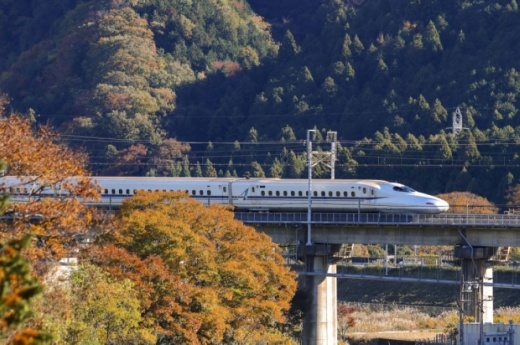The two rulings, known as the Rule of Particular Applicability and Record of Decision, are the latest milestones for the ongoing project, according to Texas Central Railroad CEO Carlos Aguilar.
“This is the moment we have been working towards,” Aguilar said in the release. “The release of the final RPA and ROD by the Federal Railroad Administration represents years of work by countless individuals, affirming a very thorough and careful federal regulatory process that will make the Texas Central Railroad the first high-speed rail system to be implemented in the United States.”
According to the release, the RPA ruling establishes safety guidelines for the system, including operating rules and practices, system qualifications and maintenance, among other protocols. The ROD establishes the project’s preferred alignment from Houston to Dallas, known as Build Alternative A, while also completing the project’s environmental review process.
The rulings have yet to be published in the Federal Register. According to Texas Central, an exact date of publication is still to be determined.
Those in opposition to the train system, such as Texans Against High-Speed Rail, argue the two rulings do little to label the project as “shovel-ready.” According to the organization’s chairman and president Kyle Workman, the rulings do not allow construction for the project to begin.
“Texas Central will likely trumpet this decision as major progress for its project, but they are simply arranging deckchairs on the Titanic,” Workman said in a Sept. 21 press release.
According to Texas Central, construction for the high-speed train system is now slated to begin in the first half of 2021 and completed in 2027. Texas Central officials previously anticipated construction to begin later this year with the railway being fully operational in 2026.
Texas Central officials report hard costs for the project will amount to $20 billion, with civil works estimated at $14 billion, as previously reported by Community Impact Newspaper.
Some government officials have responded to the rulings with support, while others have voiced their opposition to the project.
Houston Mayor Sylvester Turner, who signed a 2017 memorandum of understanding with the company, announced his support for the project.
“The construction of high-speed rail will have a generational impact, creating thousands of jobs right here in Houston and injecting billions of dollars into our local businesses,” Turner said in a Sept. 21 statement. “Once operational, the system will create connections and opportunities never thought possible.”
In opposition, District 8 U.S. Rep. Kevin Brady argued that the project will come at a cost to taxpayers and rural Texas communities.
“The bottom line is [Texas Central]’s project remains unfeasible and unrealistic,” Brady said in a Sept. 22 statement. “The cost of this project has tripled since its inception, investors have abandoned the project, supporters have reneged on earlier promises and [Texas Central] is now actively seeking taxpayer dollars to subsidize the financially shaky project.
Offshore allegations
In a Sept. 15 press release, District 13 State Rep. Ben Leman alleged that Texas Central deeded Texas land to an offshore entity known as “Japan Texas High-Speed Railway Cayman GP.”Today, I released the following press release update on the proposed Texas High Speed Rail Project. Did you know: Public documents show Texas Central has deeded property from Texas landowners to the Japanese Government through an offshore entity set up in the Cayman Islands. pic.twitter.com/ZiTuLQ7f4r — Ben Leman (@BenLemanTX) September 15, 2020
“That is not a Texan thing to do and Texas Central must be stopped before other Texans and Texas taxpayers end up on the hook for their web of lies and misinformation,” Leman said in a statement.
According to Texas Central officials, all land parcels acquired by the company were purchased through voluntary sale by property owners, as eminent domain has not been utilized.
“Despite unfounded rumors to the contrary, Texas Central Railroad, a Texas-based company, owns the property purchased for the state-of-the-art high-speed train project and continues to honor all of the commitments made to the landowners who have participated in the Land Option Purchase Program," Texas Central said in a Sept. 22 email statement. "Subsequently, Texas Central provided a security interest on its acquired property to its lender which is customary practice in real property transactions. As momentum builds toward physical construction, Texas Central continues to engage in personalized, open and collaborative discussions with landowners, outlining the project’s benefits, listening to their concerns and answering their questions.”





